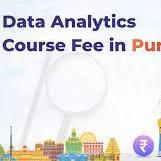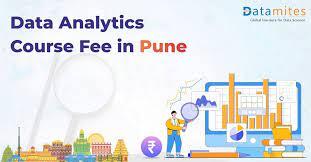Sponsored
- Female
- 24/05/1997
- Followed by 0 people
Recent Updates
- Python is a versatile and powerful programming language known for its simplicity and readability. Here's a brief overview:
General purpose: Python can be used for various purposes such as web development, data analysis, artificial intelligence, scientific computing, automation, and more.
Easy to learn: Python has a straightforward and concise syntax, making it accessible for beginners. Its readability resembles English, which helps in understanding and writing code efficiently.
Interpreted: Python is an interpreted language, meaning that code is executed line by line, which makes debugging easier. However, it can be slower than compiled languages for certain tasks.
High-level: Python abstracts many complex details, allowing developers to focus on solving problems rather than dealing with low-level programming tasks.
Large standard library: Python comes with a comprehensive standard library that includes modules and functions for various tasks like file I/O, networking, mathematics, and more. This reduces the need for external libraries for many common tasks.
Dynamic typing: Python uses dynamic typing, meaning you don't need to specify variable types explicitly. This can make code shorter and more flexible but may lead to potential errors if not handled carefully.
Community and ecosystem: Python has a large and active community of developers contributing to its ecosystem. There are thousands of third-party libraries and frameworks available, expanding its capabilities for different domains and applications.
[url=https://www.sevenmentor.com/best-python-classes-in-pune.php] Python Training in PunePython is a versatile and powerful programming language known for its simplicity and readability. Here's a brief overview: General purpose: Python can be used for various purposes such as web development, data analysis, artificial intelligence, scientific computing, automation, and more. Easy to learn: Python has a straightforward and concise syntax, making it accessible for beginners. Its readability resembles English, which helps in understanding and writing code efficiently. Interpreted: Python is an interpreted language, meaning that code is executed line by line, which makes debugging easier. However, it can be slower than compiled languages for certain tasks. High-level: Python abstracts many complex details, allowing developers to focus on solving problems rather than dealing with low-level programming tasks. Large standard library: Python comes with a comprehensive standard library that includes modules and functions for various tasks like file I/O, networking, mathematics, and more. This reduces the need for external libraries for many common tasks. Dynamic typing: Python uses dynamic typing, meaning you don't need to specify variable types explicitly. This can make code shorter and more flexible but may lead to potential errors if not handled carefully. Community and ecosystem: Python has a large and active community of developers contributing to its ecosystem. There are thousands of third-party libraries and frameworks available, expanding its capabilities for different domains and applications. [url=https://www.sevenmentor.com/best-python-classes-in-pune.php] Python Training in PuneWWW.SEVENMENTOR.COMBest Python Classes in Pune | Python Training in PunePython Classes in Pune will help you to learn the fundamentals of the Python programming language. Get Job ready with our practical Python Course with projects0 Comments 0 SharesPlease log in to like, share and comment! - Data analytics offers numerous advantages across various industries and business sectors. Here are some key advantages:
Informed Decision Making:
Data analytics provides valuable insights by analyzing large datasets, enabling informed and data-driven decision-making.
Improved Efficiency:
By identifying patterns and trends, data analytics helps optimize processes, reduce inefficiencies, and streamline operations, leading to increased overall efficiency.
Competitive Advantage:
Organizations that leverage data analytics gain a competitive edge by making strategic decisions based on a deeper understanding of market trends, customer behavior, and operational dynamics.
Enhanced Customer Experience:
Data analytics allows businesses to understand customer preferences, behavior, and feedback, leading to the development of personalized products and services that meet customer expectations.
Risk Management:
Through predictive analytics, businesses can identify potential risks and mitigate them before they escalate, enhancing overall risk management strategies.
Cost Savings:
Data analytics helps identify areas of cost reduction and optimization by identifying inefficiencies, preventing errors, and optimizing resource allocation.
Innovation and Product Development:
Analyzing customer feedback and market trends enables organizations to innovate and develop products or services that align with market demands and preferences.
Real-time Insights:
With advanced analytics tools, businesses can access real-time data insights, enabling them to respond quickly to changing market conditions and make timely decisions.
Targeted Marketing:
Data analytics enables the creation of targeted marketing campaigns by understanding customer segments, preferences, and behaviors, leading to more effective and personalized marketing strategies.
Improved Supply Chain Management:
Data analytics helps optimize supply chain processes, from inventory management to demand forecasting, resulting in reduced costs and improved overall efficiency.
Fraud Detection and Prevention:
In financial sectors and other industries, data analytics is crucial for detecting patterns indicative of fraudulent activities, and helping organizations implement preventive measures.
Performance Monitoring:
Organizations can use analytics to monitor the performance of various aspects of their business, such as employee productivity, sales performance, and overall operational efficiency.
[url=https://www.sevenmentor.com/data-analytics-courses-in-pune.php]Data Science Course in PuneData analytics offers numerous advantages across various industries and business sectors. Here are some key advantages: Informed Decision Making: Data analytics provides valuable insights by analyzing large datasets, enabling informed and data-driven decision-making. Improved Efficiency: By identifying patterns and trends, data analytics helps optimize processes, reduce inefficiencies, and streamline operations, leading to increased overall efficiency. Competitive Advantage: Organizations that leverage data analytics gain a competitive edge by making strategic decisions based on a deeper understanding of market trends, customer behavior, and operational dynamics. Enhanced Customer Experience: Data analytics allows businesses to understand customer preferences, behavior, and feedback, leading to the development of personalized products and services that meet customer expectations. Risk Management: Through predictive analytics, businesses can identify potential risks and mitigate them before they escalate, enhancing overall risk management strategies. Cost Savings: Data analytics helps identify areas of cost reduction and optimization by identifying inefficiencies, preventing errors, and optimizing resource allocation. Innovation and Product Development: Analyzing customer feedback and market trends enables organizations to innovate and develop products or services that align with market demands and preferences. Real-time Insights: With advanced analytics tools, businesses can access real-time data insights, enabling them to respond quickly to changing market conditions and make timely decisions. Targeted Marketing: Data analytics enables the creation of targeted marketing campaigns by understanding customer segments, preferences, and behaviors, leading to more effective and personalized marketing strategies. Improved Supply Chain Management: Data analytics helps optimize supply chain processes, from inventory management to demand forecasting, resulting in reduced costs and improved overall efficiency. Fraud Detection and Prevention: In financial sectors and other industries, data analytics is crucial for detecting patterns indicative of fraudulent activities, and helping organizations implement preventive measures. Performance Monitoring: Organizations can use analytics to monitor the performance of various aspects of their business, such as employee productivity, sales performance, and overall operational efficiency. [url=https://www.sevenmentor.com/data-analytics-courses-in-pune.php]Data Science Course in PuneData Analytics Course in Pune - SevenMentor | SevenMentorData Analytics Course in Pune builds data science skills from data visualisation to data mining with analytics.0 Comments 0 Shares -
More Stories
Sponsored

